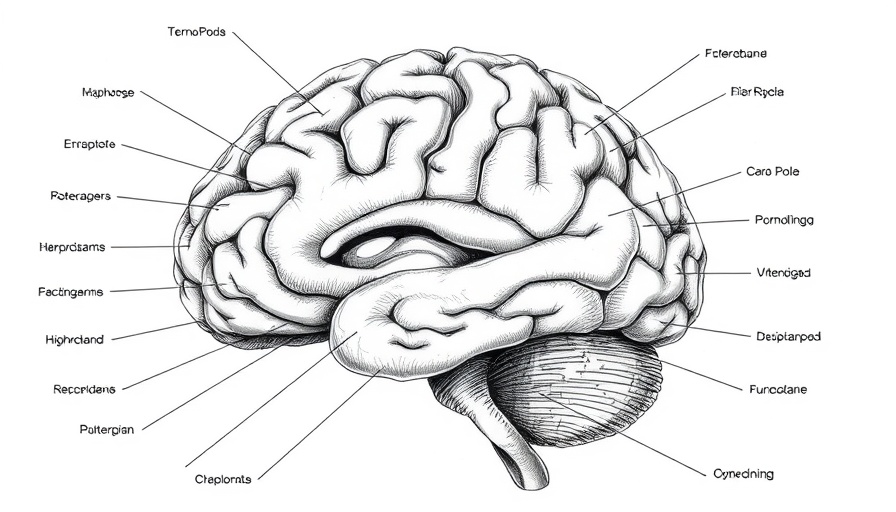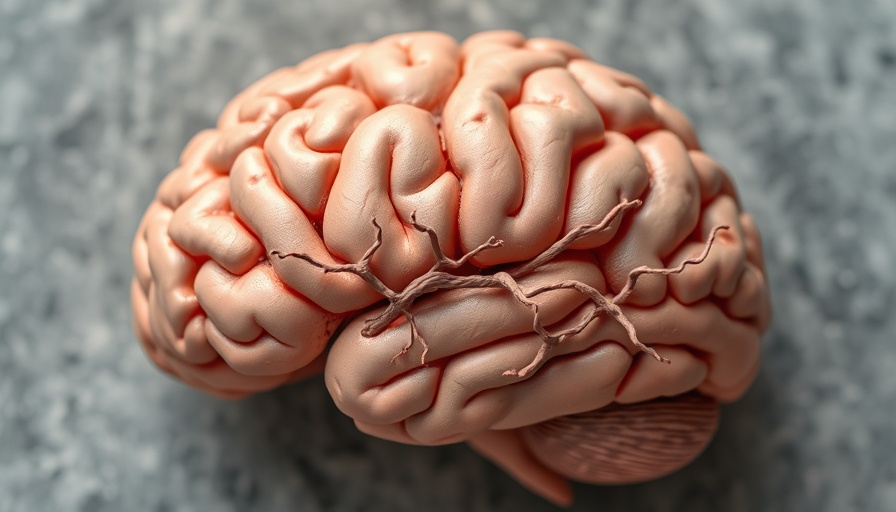
Understanding Neurogenesis: A Lifelong Journey of the Hippocampus
A recent groundbreaking study from the Karolinska Institutet in Sweden unveils that new neurons continue to form in the adult human hippocampus, providing fresh evidence for the brain's remarkable adaptability throughout life. This area of the brain is pivotal for memory formation and emotional regulation, challenging long-standing beliefs regarding the limitations of neurogenesis in adulthood.
Highlighting a Major Scientific Milestone
The journey of revelation began in 2013, when researchers first demonstrated that neurogenesis occurs in adults. However, doubts remained about the existence and role of neural progenitor cells in adults; these progenitor cells are a precursor to neuron formation. The new study finally confirms the presence of these cells, indicating that the human brain does indeed retain the capacity to create new neurons far beyond early life.
Advanced Techniques Unraveling the Mystery
This ambitious study combined techniques such as single-nucleus RNA sequencing and flow cytometry to analyze brain tissues from individuals ranging from 0 to 78 years old. By assessing gene activity within individual cell nuclei, researchers mapped the stages of neuronal development. The findings revealed a robust population of neural progenitor cells, particularly in an area of the hippocampus known as the dentate gyrus, crucial for learning and adaptability.
The Implications for Health and Wellness
Understanding neurogenesis has vital implications for health and wellness, particularly in the context of age-related memory decline and neurodegenerative diseases. As we ponder how to enhance cognitive function, this study urges us to explore potential new treatments aimed at stimulating neurogenesis. This may reflect a shift towards more holistic approaches in health and wellness, which emphasize natural and alternative methods to foster brain health.
Exploring the Community Health Connection
With increasing interest in health and wellness initiatives across communities, the study underscores the importance of fostering environments that encourage mental health. By integrating practices such as mindfulness, exercise, and nutrition—elements recognized in community health and wellness centers—individuals may support their cognitive health. Investing in such programs can lead to better quality of life as populations age.
Tips for Promoting Neurogenesis Naturally
Practical insights suggest that lifestyle changes can promote neurogenesis:
- Physical Activity: Regular exercise not only improves cardiovascular health but also fosters the growth of new brain cells.
- Nutritional Supplements: Incorporating certain nutritional supplements, such as omega-3 fatty acids, may support brain health.
- Meditation and Mindfulness: These practices can enhance emotional regulation and could stimulate neurogenesis over time.
Concluding Thoughts on the Future of Neurogenesis
As research continues to explore the depths of neurogenesis, the hope lies in translating these findings into revolutionary treatments for conditions such as Alzheimer’s and other cognitive decline disorders. The confirmation of adult neurogenesis in humans opens the doors for significant advancements in neurobiological research and community wellness strategies.
In summary, fostering environments where neurogenesis is possible could not only improve individual cognitive health but also influence broader health and wellness trends in society. Take a step towards a vibrant health journey by engaging in activities that promote brain health, such as joining a local wellness group or reading health and wellness books.
 Add Row
Add Row  Add
Add 




 Add Row
Add Row  Add
Add 


Write A Comment